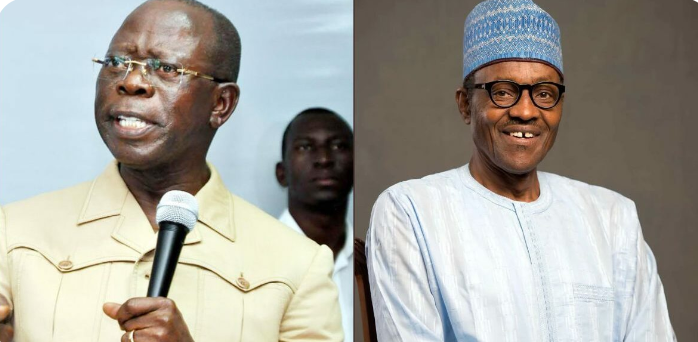
Nigeria's Economic Woes: Oshiomhole Blames Buhari's Excessive Money Printing

The former Edo State Governor and current Senator representing Edo North, Adams Oshiomhole, has launched a scathing attack on the economic policies of the Buhari administration, specifically targeting the Central Bank of Nigeria's (CBN) use of Ways and Means financing. According to Oshiomhole, this policy has led to the crippling of the naira and the current economic hardship facing the nation.
Speaking at the Progressive Governors Forum's Meeting and Interactive Session held in Benin City on Saturday, June 28, 2025, Oshiomhole alleged that the excessive printing of money by the CBN under former President Muhammadu Buhari was tantamount to reckless monetary policy. He drew comparisons to failed regimes in Zimbabwe and Uganda, where the printing of money was not backed by earned revenue or resources.
Oshiomhole cited the example of the former President of Uganda, Idi Amin, who asked the Central Bank governor to print more money, and the governor warned that it would render the currency worthless, like a sheet of paper. He claimed that the immediate past CBN governor was doing the same thing, printing over ₦31 trillion, which was called Ways and Means.
The Ways and Means provisions allow the federal government to borrow short-term funds from the central bank to cover urgent budget shortfalls. However, a 2024 Senate ad-hoc committee report revealed that over ₦31 trillion was printed under this provision by the previous administration. Oshiomhole described this move as deceptive and disastrous, stating that the government uses jargon to deceive people.
According to Oshiomhole, the influx of unbacked currency led directly to the depreciation of the naira and rising inflation, which continue to fuel Nigeria's economic woes. He emphasized that understanding the root cause of the present cost of living and exchange rate regime requires tracing it to the excessive amount of banknotes created through the so-called Ways and Means.
Oshiomhole's comments have sparked a national conversation about the economic policies of the previous administration and the impact of excessive money printing on the nation's economy. As the nation grapples with the challenges of economic hardship, Oshiomhole's assertion that the current government has eliminated the Ways and Means provision offers a glimmer of hope.
The senator's assertion that the previous administration's economic policies were reckless and disastrous is a damning indictment of the Buhari administration's handling of the economy. The comparison to failed regimes in Zimbabwe and Uganda is a stark reminder of the dangers of unchecked money printing and the importance of sound monetary policy.
As the nation looks to the future, it is clear that economic reform will be a key priority. The current government's efforts to eliminate the Ways and Means provision and restore fiscal discipline will be closely watched. The nation can only hope that the lessons of the past will inform the decisions of the present and that a more stable and prosperous future can be built on the foundation of sound economic policy.
The impact of excessive money printing on the nation's economy cannot be overstated. The depreciation of the naira and rising inflation have had far-reaching consequences for the nation's citizens, from increased poverty to reduced purchasing power. As the nation seeks to recover from the economic hardship, it is clear that a sustained effort will be required to restore the economy to a path of growth and stability.
In conclusion, Oshiomhole's comments serve as a timely reminder of the dangers of reckless economic policy and the importance of sound monetary management. As the nation looks to the future, it is clear that economic reform will be a key priority. The current government's efforts to restore fiscal discipline and eliminate the Ways and Means provision will be closely watched, and the nation can only hope that the lessons of the past will inform the decisions of the present. With a sustained effort and a commitment to sound economic policy, Nigeria can build a more stable and prosperous future for its citizens.
The nation will be watching closely as the government navigates these challenges and works to restore the economy to a path of growth and stability. One thing is certain: the future of Nigeria's economy hangs in the balance, and the decisions made today will have far-reaching consequences for generations to come.
As the debate around economic policy continues, one thing is clear: the nation needs bold and decisive action to restore the economy to a path of growth and stability. The question on everyone's lips is: what will the government do next? Only time will tell, but one thing is certain: the future of Nigeria's economy is in the balance. The government must act swiftly and decisively to restore the nation's economic fortunes and build a more stable and prosperous future for its citizens.
The clock is ticking, and the nation waits with bated breath as the government navigates these challenges and works to restore the economy to a path of growth and stability. The decisions made today will have far-reaching consequences for generations to come.


